Imagine: You’re running off post-match adrenaline. You just got the game-winning shot or set a new personal record. You’re on the bus ride home back laughing with your friends— but then it hits you. You have two textbook readings, a French test, and four other assignments due tomorrow.
You don’t know whether to soak up the achievement you spent so long waiting for, or to just start crying over the amount of work you have. Does this sound familiar to you?
Almost every student at Abington Friends School plays or had played a sport once in their high school experience. Our school revolves around athletics: sports are amplified through the halls, through posters and announcements, or our requirements for sports credits, Roo-Pacs.
While sports bring many students and the school an immense pride and joy, student athletes often face unique mental health challenges that are overlooked around campus.
Emma Hacker ‘27 said “Sports allow… me to be… myself and make friends.” But she also feels like she struggles with “balancing…schoolwork and sports.” She describes often feeling “stressed” due to the expectations placed on her by her sport and the community around her.
Gio D’Amico ‘27 also said he feels like “students should get more extensions and teachers should be understanding in regard to student athletes’ schedules”.
D’Amico and Hacker both also said how they are frustrated when compared to their peers. They argue non-student athletes get the luxury of getting home on time and being able to complete homework early and they don’t. However, they still both have the same expectations placed on them by teachers.
It is true that many student-athletes stay up late after away games doing schoolwork. The lack of sleep and downtime leads to cycles of anxiety and exhaustion; ones that are often battled alone.
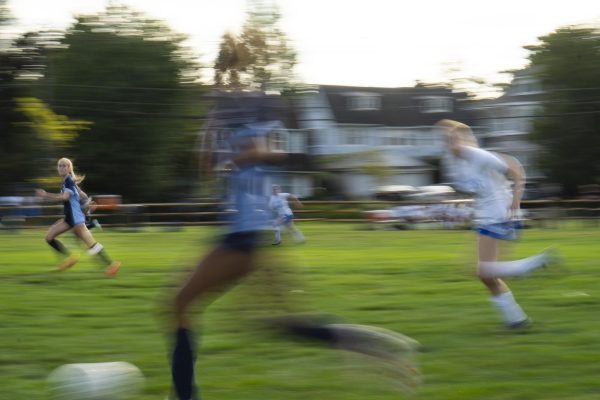
Although it may seem like a student athlete is thriving, a lot of the time, they’re battling a multitude of struggles. Many student athletes face pressures coming from all directions, such as coaches, parents, and peers. A lot of them feel great pressure and expectations to win, to represent the school, to make someone proud.
All these expectations coming from school and sports can lead to burnout. Some athletes even describe feeling a loss of love for their sport. When student athletes look visibly healthy, it’s hard to see what’s really going on beneath the surface.
According to a study on college athletes, 33% of all college students will experience serious mental health struggles such as depression or anxiety, and 30% of them will seek help. However, when it comes to college student-athletes only about 10% seek help for their mental health.
Teachers and coaches are often uneducated about these struggles and miss crucial signs such as missing assignments and unusual fatigue.
Furthermore there are often inadequate resources to help guide student athletes. The discussion around mental health is often stigmatized, and so student athletes feel as though they are struggling alone.
This couldn’t be farther from the truth as The National Collegiate Athletic Association found that 30% of surveyed athletes feel extremely overwhelmed and 25% of those athletes feel mentally exhausted.
The battle against mental health needs to be addressed through unity and awareness. Behind the smiles and the highlight reels, athletes are humans first. It is up to our school community to start the conversation surrounding mental health.
If you are interested in becoming an advocate or looking for more resources, please reach out to Emma Hacker or to me. Under the advice of Head Athletic Trainer Alexis Bonisese and Cross-Country and Track and Field coach Jess Neushwander, we are founding our school’s first chapter of the non-profit “Morgan’s Message,” an initiative created after the tragic death of beloved Duke lacrosse player Morgan Rodgers. The club will aim to join the international fight against the stigma surrounding student athletes’ mental health and help create a better AFS community.
Know that you are seen, heard, loved, and more than an athlete.














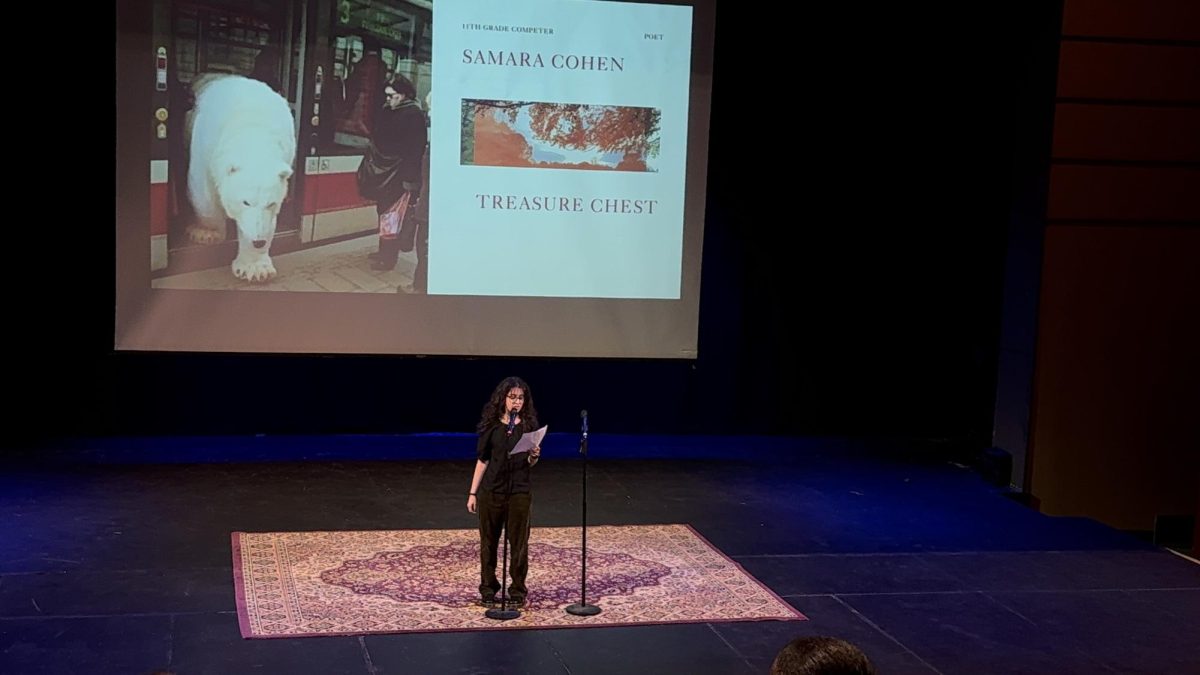



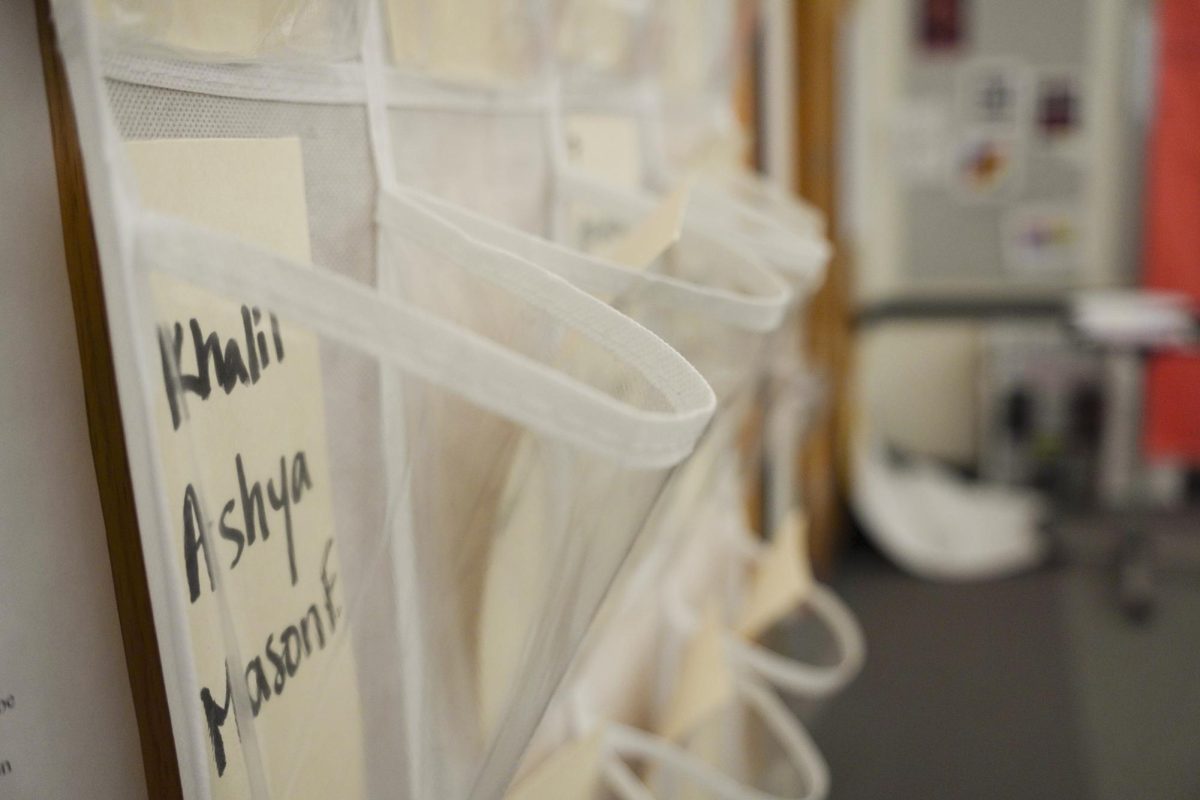
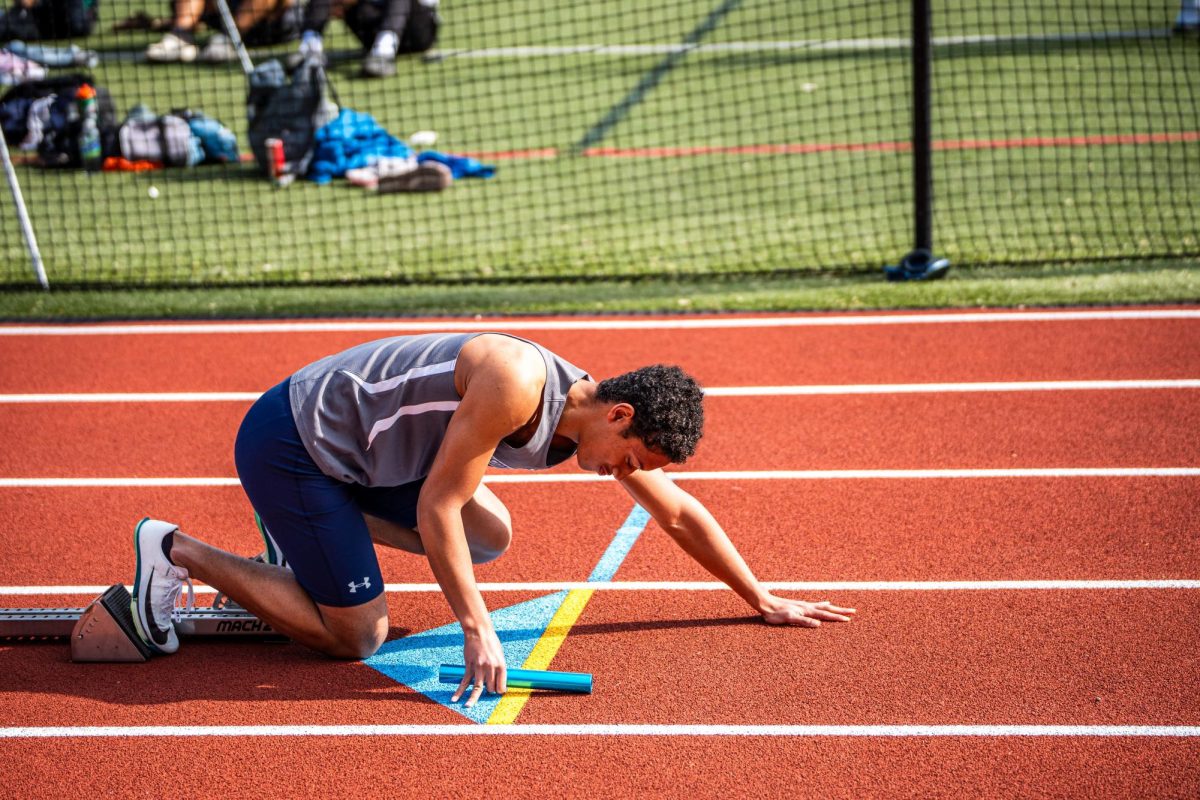
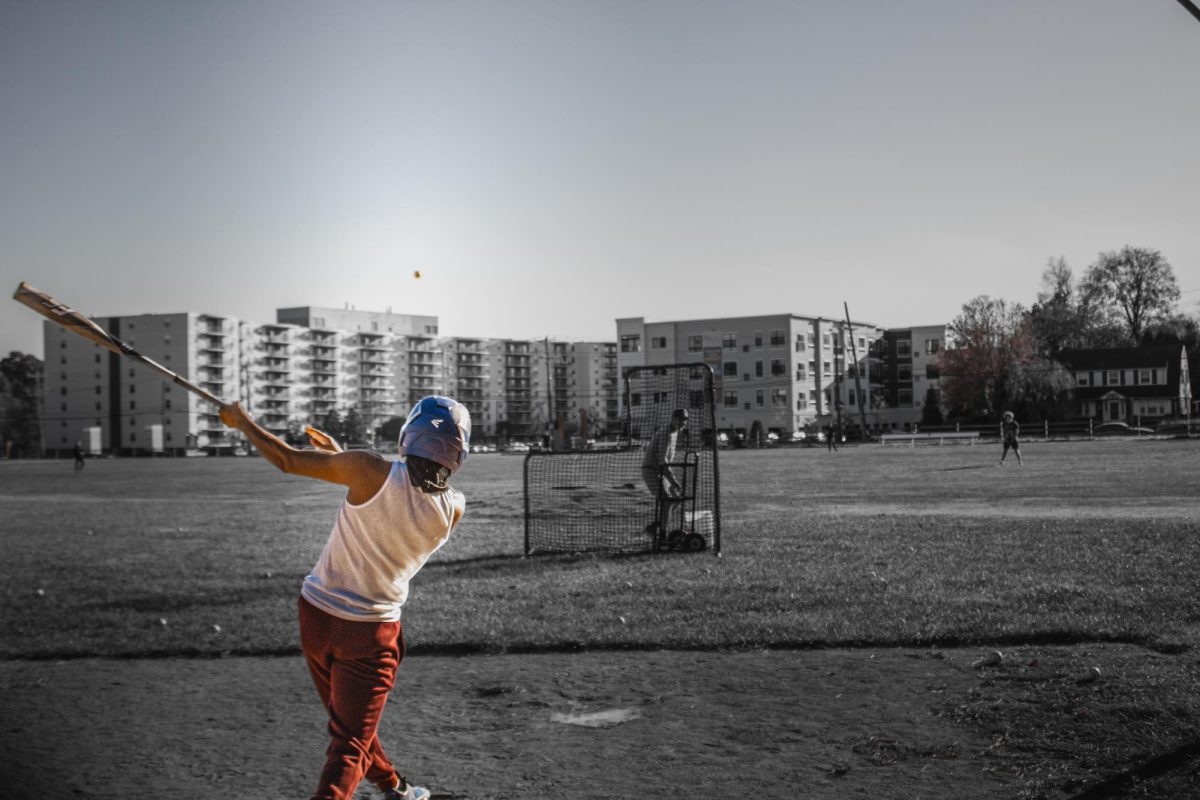
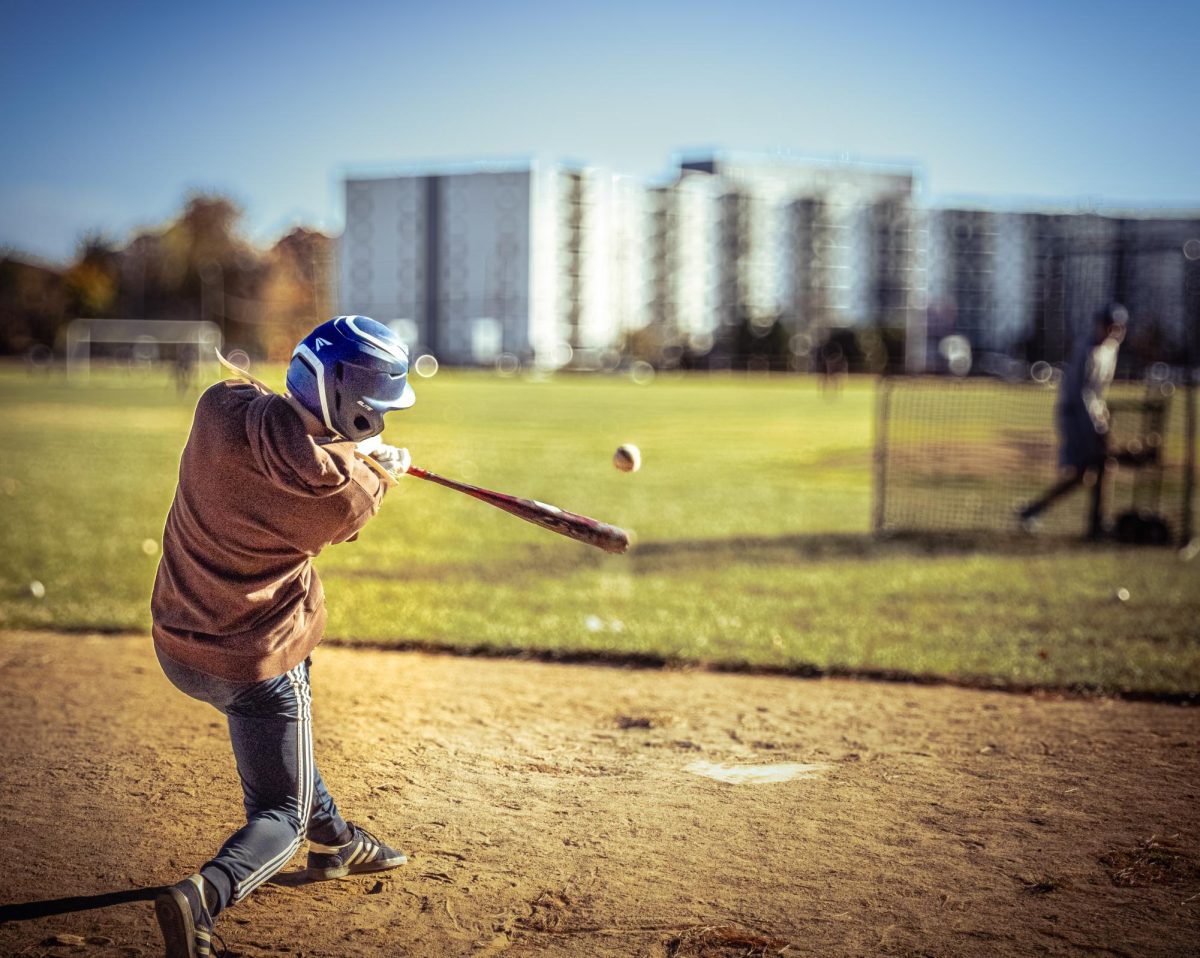
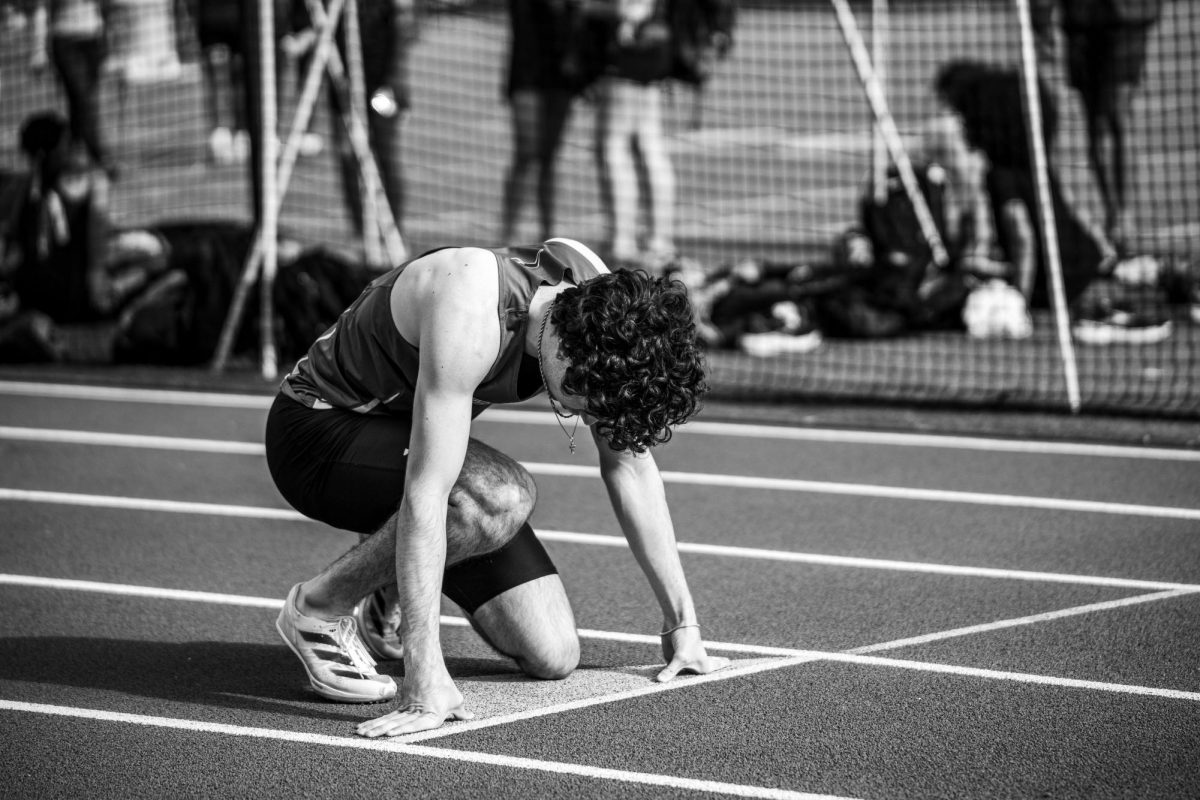



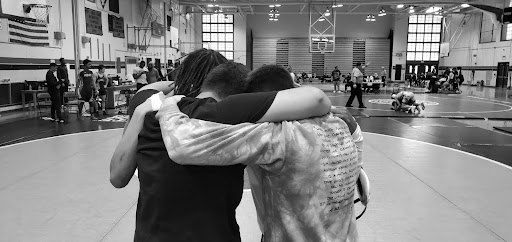

Gary L • Oct 16, 2025 at 10:50 am
As I basketball player,I really connect to this article. Having to balance practice, school, and homework can be stressful. Sometimes it feels like people don’t see how much work we have to handle. I liked how you mentioned how students can be going through stuff on the inside, but look fine on the outside. It’s great how you are starting Morgan’s Message to help student athletes feel supported and remind us that our mental health matters too. This article really changed my perspective on how many athletes feel the same way. It motivates me to support my teammates and want to speak up.
Grace J • Oct 15, 2025 at 11:51 am
I really related with this article, as I play sports year round and struggle to keep up with homework at times. I really liked you point on how athletes are humans before athletes, or even students. I think that this point is important because we can all have bad days or busy, stressful times, no matter what we are doing, and sometimes we need an extension, or just a break. Sports can be really fun and thrilling, but they need to balance out with studying or schoolwork. The stats on how many athletes seek for mental help is very interesting, and I think that more student athlete should look for someone to talk to, or ways to express their stress. Also, there should be a few breaks in the athletic schedule, it should come second to academics. For example, if a student has a big exam the next day they are able to miss practice without losing Roopacs. There should be easier ways fro student to balance sports and school, and the school should help out with that.
Natalia • Oct 15, 2025 at 9:55 am
This article definitely hits all the right points when it comes to embodying a student athlete’s life here at Abington Friends School. Our situation is a bit interesting compared to other schools, especially considering the fact that we’re required to have at least 300 hours of usually physical after school activity for freshman and sophomores. Most student athletes at our school are also in honors courses, or just in genuinely harder courses than average. I know personally, that I would have multiple sports a day without any time left to do homework. It also brings me to wonder if all of the exhaustion is worth it, whether it be just to fulfill the requirements, or for joy itself? It definitely causes burn out, but being involved also brings a sense of joy to me. I really wish teachers would understand that even if they tell us not to worry about the work, we’ll still worry about it anyway. There’s not really a way to solve it, but hopefully we can all lend an uplifting hand to each other in this burn-out season.
carter • Oct 14, 2025 at 10:03 pm
I 100 percent agree with this article. It really highlights what it feels like to be a student athlete. It’s nice to know I’m not the only one who sometimes feels overwhelmed trying to balance schoolwork, sports, and everything else. I play basketball, and on top of practices and games, I also have to train outside of school. By the time I get home, I’m usually up late studying and trying to be a good student, a good athlete, a good son, and a good friend. It can definitely be stressful and exhausting, but it’s also rewarding when all that hard work finally pays off and you achieve your goals. I really appreciate that this article is starting the conversation about how student athletes are doing mentally, not just physically.
baeleigh • Oct 14, 2025 at 7:14 pm
Seeing an article that realistically and honestly portrays what it’s like to be a student-athlete is refreshing. I play two sports, and last year, I was in middle school and played varsity for both of them. I always enjoyed bonding with my teams and had lots of fun in each season, but playing for varsity and middle school did lead to extreme burnout for me. I struggled to pull my grades back up and could only play home games for my varsity season in the spring. This article demonstrates the feeling of being in the moment and realizing what you have to go home and do very accurately. I think teachers could do a better job giving grace, especially on projects, when they notice the signs of a student struggling.
Jada Downs • Oct 14, 2025 at 6:37 pm
I completely agree with the author, it’s uncommon to hear open conversations about the struggles and pressure student athletes face, especially when it comes to balancing academics, sports, and personal responsibilities. I believe schools should show more understanding and flexibility with assignments and deadlines for student-athletes. During both 7th and 8th grade my bus would pick me up at 6:20 am and I often wouldn’t get home until around 6:30 p.m. After that, I still had hours of homework, along with responsibilities at home. Balancing school, sports, and home life not only challenging but draining. People constantly say that sleep is important but for me, it’s usually the first thing I have to sacrifice just to keep up. There aren’t enough hours in the day to do everything. On top of that if I want to truly succeed in athletics, I have to put in the extra hours of training and practice. It feels like I have to choose between being a good student and being a great athlete. That pressure and imbalance are what make the student-athlete experience so challenging.
Wyatt • Oct 14, 2025 at 5:51 pm
I read “Student Athletes, You are Not Alone” in this article, and I agree that it can be stressful balancing school and sports. I am yet to have the full understanding of a high school student-athlete at AFS, but I know at my old school it was definitely a challenge balancing school and sports. An example of this is when Emma Hacker says “Sports allow… me to be… myself and make friends.” But she also feels like she struggles with “balancing…schoolwork and sports.” I also believe that sports is a way to make friends and strengthen your relationships with your peers. One of the reasons I came to this school was because they had a system to support student athletes.
Alana Jones • Oct 14, 2025 at 2:18 pm
This article shows nothing but the truth. I am a student athlete myself and handing in work on time is one of my biggest struggles in academics. Basketball takes up a lot of my time from practices to games to outside of school workouts. There are times where I don’t arrive home until 9. So, like the article says it brings me nothing but stress. There is a saying i’ve heard plenty of time, “you are a student athlete, not an athlete student.” Yes, that is true but we shouldn’t be held to the same expectations as those who do not have after school activities. I agree with this article 100% and it feels so good to be seen.
caroline • Oct 13, 2025 at 8:50 pm
I do agree with the perspectives shared in this article because as a student athlete myself, I struggle with this idea of balancing homework and sports. My participation in athletics has made It really difficult to focus on my work and myself because it’s all so overwhelming that I don’t have time for anything as someone who gets home every late each night. I think teachers should be more flexible about due dates and helping support student athletes.
Zach • Oct 13, 2025 at 8:21 pm
I agree with this article and think it is a big problem and it is hard to solve. I have had days where there was a away game that was far and had a test and so much homework. I find myself doing work until I can’t anymore. It really affects the quality of the work especially for me. I think that it affects people physically too. after being physically exhausted you have to go home and do homework that is mentally draining and keeps you up late then the next day you have to wake up and do it again. I think the only way for teachers to help is to give extensions.
Asher • Oct 13, 2025 at 6:37 pm
I agree with this because I relate with some of these issues myself. Being a student athlete, I think it can be challenging because not only do you have to dedicate time to your sport, you will also have to spend more time doing school work. That is hard for me because I have practice every day until 5:45 or later. And because I just started high school, work is getting harder and I am getting more of it. Because of that, I am not able to finish my work on time, or I am stressed out about it, and the next day I am more tired because of it. Although it has not gotten to the point where my mental health is impacted by it, I think that teachers should consider this about students, and just keep it in mind.
avery f • Oct 13, 2025 at 6:27 pm
Yassmine Wardigee effectively raises awareness about the mental health issues that student athletes face. Many students who participate in athletics at school often get home much later than other students, taking away time from completing assignments, studying for tests, and working on extracurricular tasks like participating in clubs. Furthermore, student athletes often participate in club sports as well, which takes up even more time from students’ schedules. I play on a club team outside of school where we practice on Tuesdays, Wednesdays, and Thursdays, as well as having games on the weekend. Often, I find myself completing assignments at the last minute or not being able to put full effort into studying, as I have only a short time frame to do so. I agree with Yassmine in that balancing school work and sports is exhausting and taxing on high school students. She includes the idea that teachers have the same expectations for both student athletes and nonstudent athletes, which I completely agree with. In order to support student athletes and prevent exhaustion and burnout, teachers should recognize that student athletes have extremely busy schedules and give grace.
ethan son • Oct 13, 2025 at 6:09 pm
I completely agree that student’s need more support. There have been many times for me when I’ve come home from a game or practice, just to realize that I still have hours of homework I still have to do. It’s like living two lives at once, you go from celebrating with your teammates or being defeated with each other, and then you’re up late finishing up an assignment, sometimes it can be mentally draining for me. I think it’s important that teachers realize balance is key. Giving student athletes more flexibility could really be a huge game changer, it could help with mental health, give people more time to do other things and just help anyone in general.
jason • Oct 13, 2025 at 4:36 pm
I agree I think that this topic is very important especially for people in high school when you just start getting big projects and things like that. I also think that this is important because people also do sports that are out of school like me. I think that the teachers should understand that it is hard to do both. Me personally I have also struggled with doing both school and sports especially when I play all seasons and end up staying up way past my bed time though I dip prioritize my school work. I understand how it can affect your metal heath even though it hasn’t got to a point where it has to me.
Max Cassano • Oct 13, 2025 at 3:04 pm
I totally agree with the perspectives and also relate to them. After a day of school I will be thinking about the homework that I have to do, then I remember I have practice or a game that day. At practice it can be fun but also terrible because it could be all conditioning and then you have to come home with 4 things of homework that take an hour each. If I have a game it makes it even worse if it is an away game because I will come back to school around 7 and then drive home. Haven’t even started my homework yet and know I have to get that all done by the next day. I always find a way to finish it all because when I know I need to do something I am very efficient but it can be very stressful to come home with tons of homework. Teachers and coaches can support by giving a reasonable amount of work to do and not over do it and make the student stress.
Emmett Kubersky • Oct 13, 2025 at 2:30 pm
I do agree that student athletes should have some more support structure. I cant count the amount of times I have come home exhausted and found that I have a mountain of homework. Playing sports for me is a way to spend time with friends, expend energy, and to grow stronger. It can definitely take a toll on my energy levels, and my focusing abilities. So far I cannot tell of it is the transition to high school or my athletic career, but my grades are not as good as they were last year. I think that coaches should take into account how much they are having the athletes endure. And for the teachers, I think that they should try to collaborate with he athletics program to schedule tests and projects on days where there is not any games.
Amelia Terry • Oct 13, 2025 at 2:11 pm
I agree with all the points in this article. Being an athlete has helped me make prioritizations in my schoolwork. It’s true that I don’t have much free time, but I know how to study and use my time productively. To avoid staying up way too late I use my frees and Study Hall to get work done. It has made me more stressed, but it hasn’t got to a point where it’s severely affecting my mental health. While I don’t think that athletes should get extensions for every assignment, I think that if there’s a really long or hard assignment exceptions and extra help could be provided.
Joshua M. • Oct 13, 2025 at 12:10 pm
I agree with their point on how balancing sports and school is hard especially in high school. And can lead to mental health issues and burnouts. My athletic career at AFS has made me care more about studying and using your time wisely. This sudden time of tension has led me to evolve academically but has also affected me mentally. Sometimes after night practices, and I get home tired and stressed, I still have work to do. Moments like that drive me crazy. I even know people who skip practices or skip doing homework because of it. To avoid moments like that I just do all my work either in class, during study hall, or music block. AFS has given a wide variety of tools such as the writing center, teachers for extra help, study hall, music block. All of these tools we can use to avoid late night work and stress from studying as athletes and students.
Toby • Oct 13, 2025 at 11:48 am
Personally I do agree with the ideas shared, even though I dont exsperince some of them in my life. I do see some of my friends who are athletes struggling to get their work done for school, having to do some minutes before its due in school. My participation in athletics sometimes leaves me struggling to complete work, but most of the time it hasnt affected me a lot. I also do think that atheltics of this has affected my mental health, but positively, because playing more sport makes me happy. Teachers and coaches could work together to give extensions, or extra help for athletes when needed if their sports are getting to unmanagebe for them. This could really help athletes stay on top of their school while also playing sports.
Divya B • Oct 13, 2025 at 11:43 am
I agree with all the thoughts that were shared in this article. As an athlete that is committed to a sport that is so time consuming, I get really overwhelmed when all my work gets piled up, especially if I miss a lot of school. My goal is to make sure I stay on top of my work and complete everything on time, or even before its due just so it gets out of my mind and so it doesn’t effect my competition schedule. I think in general, AFS staff do a really good job making sure students are comfortable compare to other schools, which is really important for high schoolers.
Lauren M Washington • Oct 12, 2025 at 5:10 pm
Hi Yassmine! This is a great article about such an interesting topic. For me, as a two-season athlete participating in sports has affected my schoolwork sometimes. However, the season affects students the most is winter because it gets dark much earlier, less motivation, and overall, it is burn out season. As a student athlete you have to be pretty good at time management because it will prepare you for college.
Roth • Oct 12, 2025 at 3:42 pm
I really liked this article because it showed what student athletes really go through. It shows what student athletes like my self really go through. I liked how Emma and Gio talked about the pressure they feel trying to balance school and sports, because I think a lot of students like me can relate to that. It’s hard when teachers expect the same from everyone even though us athletes don’t have as much time. I also thought it was cool that they’re starting a “Morgan’s Message” club to help athletes talk about mental health more.
Percy • Oct 11, 2025 at 4:57 pm
While I agree with this article, I believe that student athletes should work with teachers to find the correct balance for them given that every student and team will have different levels of commitment and communicating with teachers is a life-long skill AFS aims to give their students. As a member of the swim and ultimate frisbee teams, as well as teching multiple AFS events, I constantly find myself coming home later than 8pm – especially now that I am a senior. I believe that part of being a student athlete is managing your time efficiently and learning your limits as AFS is a college prep school. However, communication with teachers doesn’t work if teachers aren’t willing to hear out students. Thus, communication is the key between letting student athletes and teachers have a good relationship that puts emphasis on learning and not burnout.
Rainy • Oct 11, 2025 at 12:52 pm
I agree with the perspectives shared in this article, and find the experiences shared very relatable. Though I haven’t participated in AFS sports since middle school, I have been heavily involved in theater – which operates on a very similar schedule, including rehearsals that end at anywhere from 5:30 to 8:30 on almost every day including weekends. Extracurricular commitments like these, whether they be sports or theater, take a tremendous toll on mental health and sleep schedules. Both sports and theater demand a diligence and presence from their participants that make balancing them with school especially hard. I think it would be reasonable for teachers to offer a grace period of at least one day for the due dates of student athletes.
Augusto Q • Oct 10, 2025 at 9:49 am
I agree with the perspectives shared in this article and appreciate the attention it brings to student-athlete related mental health. Though while AFS should do more to support student-athletes’ mental health, athletes must also take responsibility for managing their own balance between school and sports. Balancing academics and athletics can be exhausting, yes, but that challenge is also what builds discipline and resilience. Late practices, travel, and fatigue definitely impact focus and performance, yet part of being a student-athlete means learning to handle those pressures, without always expecting accommodations. At the same time, teachers and coaches should recognize when workloads become unmanageable and then of course communicate to help students find balance. Small changes, like flexibility after away games or regular check-ins, could make a substantial difference. Ultimately, both sides share responsibility: athletes should strive to stay organized and self-aware, and the school community should ensure that mental health remains a visible and supported priority.
Makayla Littles • Oct 10, 2025 at 9:36 am
I completely agree with Yassmine. My whole life I have played sports, from elementary to currently. I’ve come to realize that teachers are very oblivious to how much work goes into being a student athlete because student athletes hide their mental struggle so well. I loved how Yassmine brought up that as student athletes we do not have the same time to complete homework assignments as other students. Student athletes should not be held to the same standards as other students that get to go home right after school because practice often goes late, and we do not have enough time to complete our work. We should not be punished for wanting to engage in our community.
Balancing sports with school has often caused me a lot of mental stress. Especially during 10th grade, when I had increased my course load, my mental health was declining so much that my friend told me that she felt like she was losing me. She also described me as looking zombie-like. This year, I had to take a break from participating in tennis because I was unable to keep my grades up. Having to take a break from Tennis has been really hard, and because I love sports so much, it has been really making me even more sad. I believe that teachers should be willing to give more extensions to student athletes, so that they are not drained. I remember having to stay up to 3 am in the morning almost every night to complete assignments. I should not have to be sleep deprived in order to still be able to participate in a sport. Also, so that we are able to maintain grades, and not have to quit the sport completely.
Cadence Carson • Oct 10, 2025 at 9:33 am
Student-athletes deserve specialized mental health resources and academic accommodations since they face a unique kind of pressure balancing long practices, travel, and full academic workloads. The speaker of this AFS Blue & White article is Yassmine Wardigee, a junior at AFS who identifies themselves as a student athlete who is focusing on the underground struggles student-athletes have to manage on a day-to-day basis. The purpose of the excerpt I have decided to take a closer look at is to help create a safe environment and community for student-athletes if they feel that they are struggling with the amount of assignments given to them when they have a busy sports schedule filled with 2+ hour long practices, home and away games. The audience is targeted towards student-athletes who attend AFS, but also this can relate to many other schools who are also facing the same reality and this might encourage other individuals to advocate for better mental health resource systems. The context throughout this quote is that this is a known problem throughout the world, many students feel love for their sport but as they get older they grow apart because the workload is too much for them to handle. While it is known that doing a sport will make school work harder for you than it will for others who don’t participate in after school activities, the expectations that teachers have for their students are the same. Some teachers here at AFS also coach an after school sport. You would believe that the teachers would understand where students are coming from if they have to miss practice to get an assignment turned in on time, yet the pressure feels even more substantial because then you feel that you are letting your team and coaches down. The exigence found in this passage states, “we are founding our school’s first chapter of the non-profit “Morgan’s Message,” an initiative created after the tragic death of beloved Duke lacrosse player Morgan Rodgers.” This emphasizes the need for more mental health resources for student-athletes. As to 30% of people who filled out a survey regarding the need for more of a support system, 25% of people claimed to feel, “extremely overwhelmed…athletes feel mentally exhausted.”
Jonas Couzin-Frankel • Oct 10, 2025 at 9:22 am
I agree with the perspectives shared in this article. I think it is very difficult for students to balance a social life, athletics, and schoolwork without getting completely overwhelmed or burnt out. Last spring, when I played Ultimate Frisbee as well as doing rock climbing, there were many days throughout the week when I wouldn’t get home until 8 or 9 pm, and I still had all of my homework to do. Throughout that spring, because of my schedule, there were days when I had to pick either getting enough sleep or finishing my work, which, I know, many other student athletes experience as well, and that shouldn’t be a choice that any student needs to make. Teachers need to understand the workload that students have and the amount of time they have to complete it. While it may not be possible for teachers to simply give less work because they need to get through a certain amount of material, they can be more lenient with extensions and adapting the work to each student.
Alana • Oct 10, 2025 at 9:22 am
I agree with this article; the struggle of mental health and being a student athlete is not talked about enough in schools, and there is a lack of support to find balance because it is easy to assume by others that, when someone is a student athlete, resources and support are automatically available. When I played basketball, it was extremely difficult to balance my school work with athletics. I would frequently miss class and feel like I was behind. The treatment from the coaches also affected my mental health and made me feel anxious to come to practice or to school, so I could avoid going to practice. Teachers could support student-athletes by being flexible with extensions for assignments and tests. For coaches, they could recognize that looking towards winning is not always a mindset to have, but also nourishing their athletes’ minds.
Faye Siatkowski • Oct 9, 2025 at 8:26 pm
I really liked how Yassmine explained the struggles that student athletes face. It really isn’t talked about enough. Teachers don’t really seem to understand the feeling of coming home from a game or practice with an overwhelming amount of work. I always feel stressed trying to balance everything out. I agree there is a lot of pressure around student athletes when it comes to wanting to perform well on the field and in class. This needs more awareness around the fact that this is a very common issue high school athletes have to go through. I am glad that this topic is getting recognized.
Maya Peskin • Oct 9, 2025 at 3:45 pm
I completely agree with the perspective that was shared in this article. It is hard to be in a position where you are held to the same standards as someone else with more time to complete work. I play tennis and games, and practice does interfere with school sometimes. It is heavily encouraged within the team to come to practice or games even if you have a lot of homework or an upcoming test. The overwhelming amount of work and time to do it has a big impact on my mental health. 90% of my stress is academic-related due to workload and bad grades. When my grades slip, it is hard to get the time I need to really complete it and reset. On top of that, sometimes away games can completely affect your workload. I had a friend last year who had away games multiple times a week, and we always had Spanish in the afternoon. Therefore, they were never caught u, and their grades were slipping because it was also hard for the teacher to find a time to communicate. I think it would be helpful if teachers were more gracious about in-school time to make up missing work due to athletics. This would be helpful to fully grasp the topic.
seysa • Oct 9, 2025 at 3:31 pm
Yes I agree with the article because there have been times where I’ve been so tired after a game or practice and had to study or had loads of work.The second question is how has your participation in athletics impacted your schoolwork and your mental health? It hasn’t really affected it that much its really just stressful. I know what it takes to be student athlete and my parents do a good job of holding me at a high standard.The final question is what are ways that you think AFS teachers, coaches, and students can support student athletes’ mental health? I think they can help by giving extensions for the work and having tutor programs for people who need it.
Brennan • Oct 9, 2025 at 3:06 pm
I agree with the perspective in this article. I play baseball and basketball here at AFS and there are nights I am drained tired and by the time I’m home its already dark. This is not even mentioning the games that have not even started yet. My participation in sports drains me from doing my school work. The practice are often very hard and it is hard to stay motivated in school. I think athletics has made it harder because there are no extensions or anything on my work. I have less time than my peers to do my work. The due states are the same for me as they are for people who have more time. I think teachers could guve the athletes more time to do homework especially after games and practices. The coaches also have to be understanding that it is not easy to be a student athlete. the student has to try their best to stay motivated and do their work. In order for athletes to stay happy and motivated teachers and coaches need to be understanding.
Meadow • Oct 9, 2025 at 2:58 pm
I agree that student athletes can become overwhelmed and stressed out by all the responsibilities they have. In middle school I did a sport every season and an outside of school sport year round. This made it so hard to complete all of my work in time. I would stay up really late or do my work during school before the class when it was due. This led to me being very stressed out and pressured. I obviously wanted to do good in my sports but I also wanted to do good in school. I think something that coaches and teachers can do is be more understanding and try to give us grace. I think teachers should be open to extensions and coaches should be understanding if you need to miss a practice.
brian jackson jr • Oct 9, 2025 at 2:56 pm
In the student athlete article it asks a few questions. The first question it asks is do you agree with the perspectives shared in this article? I would say yea there have been times where I’ve been doing homework on the bus and been stressing if I finished this or not before having the class. The second question is how has your participation in athletics impacted your schoolwork and your mental health? It has been hard sometimes cause I’m not that good and it makes me mad. I also am a slacker. I get bored of practicing very easily.The final question is what are ways that you think AFS teachers, coaches, and students can support student athletes’ mental health? I think they can help by not giving so much work or when you have a game and are not able to do it I think they should understand better.
Milan • Oct 9, 2025 at 2:52 pm
I really liked the article “Student Athletes, You Are Not Alone.” It was really honest about how being a student athlete can be hard sometimes. I agree that a lot of people don’t see the pressure we deal with to do well in school and in sports. For me, sports help me stay focused and make friends, but sometimes it’s stressful trying to keep up with homework, practice, and games. There are times when I feel super tired or worried about falling behind.
I think AFS teachers and coaches can help by checking in more and understanding when we have a lot going on. Even just letting us talk or giving a little extra time on work after big games could make a difference. It’s nice to know other student athletes feel the same way and that we’re not alone in it.
Sam • Oct 8, 2025 at 8:38 am
This article is very true. I play baseball and I wrestle, and both have very intense schedules. For baseball, we play two to three games every week. Games with that frequency can have me getting home later than I would from a typical practice. Wrestling is even worse. We have practice every day, typically matches every Tuesday or Wednesday, and tournaments every Saturday, starting early in the morning and ending in the afternoon. This leaves me with limited time two out of three sports seasons, which is very difficult, but I can only imagine how hard it is for three sport athletes.
Solomon • Oct 7, 2025 at 8:00 am
I really appreciated reading this article, especially as someone who has not participated in athletics at AFS on a sports team in upper school. Even though I am not affected by athletics because I am not a student athlete, I really do agree with the perspectives shared. As a non-athlete I really do feel for the many athletes in the AFS community who have practices, games, and matches that consume so much time and make it hard to balance deadlines and expectations set by teachers. I really appreciate the work that is being done to break the stigma around mental health challenges student athletes face with a Morgan Message’s chapter being brought to AFS.
[email protected] • Oct 7, 2025 at 7:37 am
In this article, Yassmine does a very successful job of bringing awareness to the mental health struggles and unique challenges student athletes face. Since she is an athlete writing directly to athletes, she provides an invaluable point of view that AFS needs and leverages her argument. As she states, almost every student at AFS has played a sport during their time here, even if they usually wouldn’t (due to RooPacs). I also think that there is such a rich, prevalent sports culture here at AFS that often gets overlooked, so thank you so much for writing this. There are extremely high expectations for student athletes, and I hope this article will bring more attention to it and support!